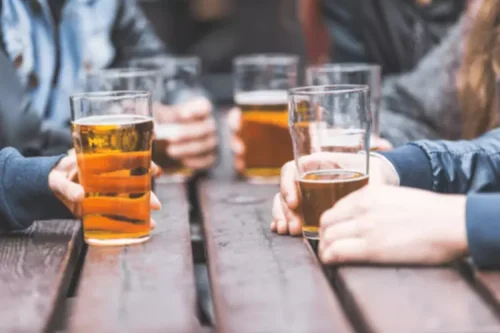
‘Buzzed’ is used to denote the first phase or the beginnings of the effects of drinking alcohol. People with low alcohol tolerances are more likely to feel the buzz strongly even if they only have had just a few drinks. In addition to personality traits, physiological traits can also influence drunk behavior.

Recognizing alcohol overdose
At this stage, a person should feel like their normal self. Alcohol in the form of ethanol, also called ethyl alcohol, is in alcoholic beverages. It's also in mouthwash, some cooking extracts, some medicines and certain household products. Ethyl alcohol poisoning generally results from drinking too many alcoholic beverages in a short period of time.
Levels of Alcohol Tolerance
- They might start to slur their words or become less coordinated, but nothing can bring their mood down.
- As you consume alcohol, your liver starts breaking it down.
- You may need to turn to a support group or 12-step program.
- For some people, it is helpful to stop drinking when they start feeling tipsy or are in the euphoric stage.
- Long before kids even begin to drink, they've already learned their alcohol expectancies from their parents, peers, and the media.
- A BAC of 0.08 is the legal limit of intoxication in the United States.
If you often lose track of the number of drinks you have, consider counting them using a smartphone app or similar method. That’s why heavy drinking around coworkers is nearly always a bad idea. One minute you and Karen from accounting are exchanging polite jokes over daquiris. The next, she’s running out of the bar in tears because you told her what you really think of her gerbil desk calendar. People — especially men — who are prone to anger or aggression while sober are more likely to act aggressive when they’re drunk. These symptoms are a sign you need to seek medical help for them.
- Due to the implication that someone is not trying hard enough to recover, the term has negative connotations, and AA now discourages its use.
- There’s nothing wrong with being affectionate with people we are familiar with.
- People cannot treat severe alcohol intoxication — or alcohol poisoning — at home.
- The table below shows common symptoms at each level of alcohol intoxication.
What it feels like to be tipsy
Your brain produces antidiuretic hormone (ADH), which tells your kidneys how much water to retain. Alcohol limits ADH production, which brings us to our next body part. Ethanol is a clear, colorless liquid that’s a byproduct of plant fermentation. This means it’s not produced on its own, but as a result of another process. Read on to learn exactly why and how you go from drink to drunk.

These people have a higher risk of having auto-brewery syndrome. In auto-brewery syndrome, your body automatically ‘brews’ carbohydrates into ethanol or alcohol. Too much yeast inside your intestines or stomach may lead to this condition. Both children and adults may have the auto-brewery syndrome. Of course, if one is in the phase of being actually ‘drunk,’ so many things can happen, whether planned, unplanned, intended, or unintended. Most cases of accidents and even crimes happen when one is intoxicated.

An individual going into hypoglycemia may appear to be drunk. They may appear confused when talking, lose their balance, and seem disoriented. Staying without sleep for more than 24 hours is equivalent to having a BAC of 0.1%, beyond the legal limit of 0.08%. If the condition worsens, it may lead to chronic fatigue syndrome, IBS, or depression.
Hypoglycemia is when the glucose levels in your blood drop alarmingly low. In sleep drunkenness, your brain skips this inertia phase. And so, the transition is rough, causing you to feel as though you’re drunk. You might feel drunk right after you wake up as opposed to the auto-brewery syndrome. It can be considered that being ‘tipsy’ is the middle ground of considering oneself when it comes to drinking alcohol.
Each co-occurring disorder can make the other harder to treat. Integrated treatment involves treating both disorders at the same time. This can allow you to treat the symptoms of your mental health what is it like being drunk disorder without turning to alcohol or drugs. Many now consider dry drunk syndrome to be a stigmatizing term, as it can imply that a person is not putting in the effort necessary to recover.
- When irritation turns to aggression, it can place family and friends in real danger.
- Unlike food, which can take hours to digest, the body absorbs alcohol quickly — long before most other nutrients.
- Because alcohol changes the way the brain processes information, it also makes it difficult for people to make suitable decisions or assess their own behavior.
- And more than half of the people polled for the study said they felt stressed because of it.
- People in this stage will likely also have their balance and coordination impaired enough to result in staggering and an inability to stand.
What to do in different situations and when to seek emergency care

